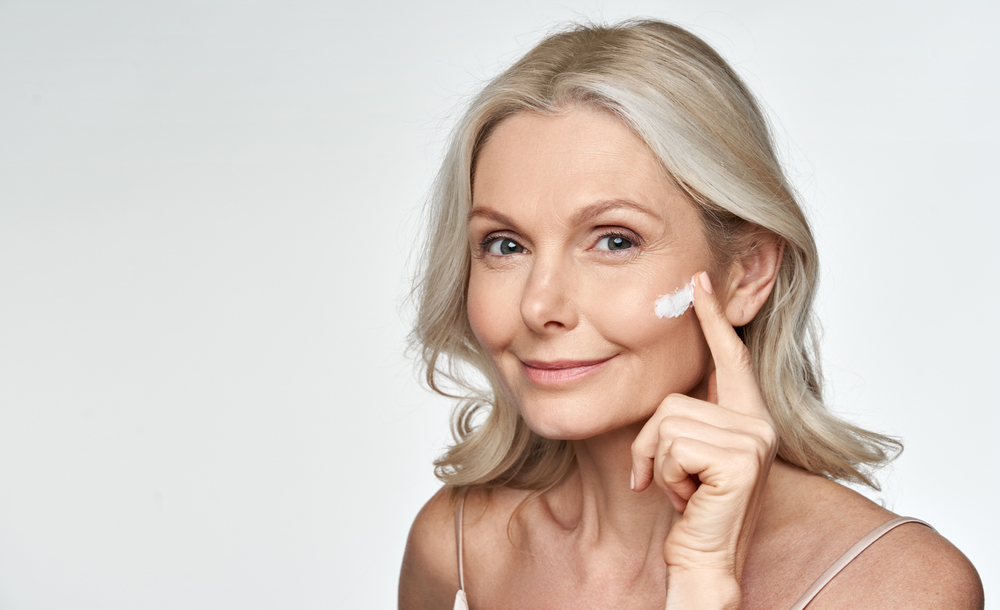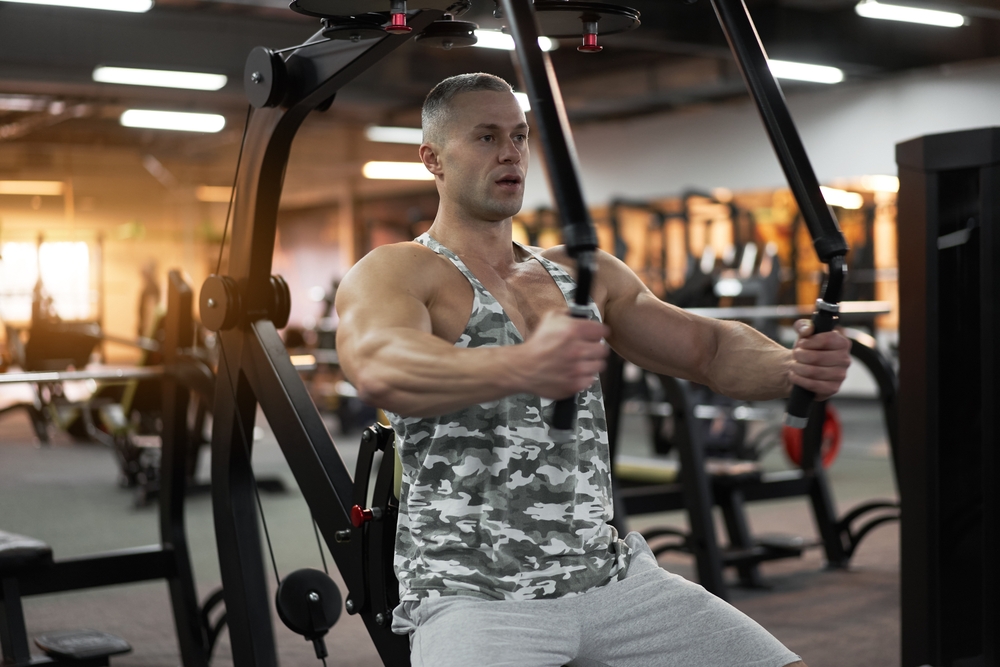In an era where age-defying secrets are just a click away, it’s easy to get swept up in the latest longevity fads. But what if much of the conventional wisdom we’ve embraced is nothing more than myth? It’s time to unravel these longevity lies and replace them with grounded truths. This listicle will debunk common misconceptions and offer practical advice for a healthier, longer life.
1. Longevity Is Purely Genetic

It’s easy to attribute longevity solely to good genes, but the reality is far more nuanced. While genetics does influence lifespan, lifestyle choices often play an equally important, if not greater, role. Factors such as environment, diet, exercise, and social connections all contribute significantly to how we age. Relying only on genetics as your guide to longevity overlooks the impact of daily habits and decisions.
Instead of resigning yourself to your genetic fate, focusing on what you can control makes a big difference. Adopting a healthy lifestyle that includes balanced nutrition, regular physical activity, and effective stress management can improve your chances of a longer, healthier life. Engaging in meaningful social relationships and activities also supports mental and emotional well-being. As detailed in this Harvard Health article, while you can’t change your genetic code, you have considerable power to influence your health outcomes through your choices.
2. Cardio Is the Only Exercise You Need

While cardiovascular exercise is important, thinking it’s the only workout necessary for longevity is a common misconception. Many people fall into the trap of believing that as long as they’re doing some form of cardio, they’re on the path to a long life. However, a comprehensive fitness routine should include strength training, flexibility exercises, and balance work. According to the Mayo Clinic, including these elements can enhance overall health, prevent injury, and add years to your life.
Strength training is particularly important as we age, as it helps maintain muscle mass and bone density, which are vital for staying active and independent. Flexibility and balance exercises can prevent falls, a major risk factor for older adults. Instead of only hitting the treadmill or the track, consider incorporating yoga, pilates, or weightlifting into your routine. A balanced approach to exercise can lead to a more vibrant, longer life.
3. Detox Diets Are Essential For Longevity

Detox diets promise a quick fix for clearing the body of toxins, but the body is already equipped with its efficient detox system. The liver, kidneys, and digestive tract naturally eliminate waste and toxins without the need for restrictive diets. Following extreme detox regimens can sometimes do more harm than good, stripping the body of essential nutrients and energy. True longevity relies on supporting your body’s natural detox processes, not subjecting it to fads.
Instead of jumping on the detox bandwagon, focus on maintaining a balanced diet rich in fiber, hydration, and essential nutrients. This approach supports your body’s innate ability to cleanse itself and promotes overall health. Incorporate plenty of fruits, vegetables, and whole grains to aid digestion and waste elimination. Prioritize a lifestyle that supports your body’s natural functions rather than temporary and potentially harmful detox trends.
4. More Sleep Equals Longer Life

It’s easy to think that more sleep automatically equates to a longer life, but quality trumps quantity when it comes to sleeping. While sleep is undeniably important for health, oversleeping can sometimes signal underlying health issues and doesn’t necessarily lead to a longer lifespan. Quality sleep, characterized by consistent patterns and restful nights, is more beneficial than simply aiming for more hours in bed. Striving for seven to nine hours of sleep per night is generally recommended for adults, but individual needs can vary.
Consider your sleep environment and habits if you’re seeking to improve your sleep quality. Create a calming sleep space, limit screen time before bed, and establish a regular sleep schedule. Instead of chasing more hours, focus on better sleep hygiene to enhance your overall well-being. Remember, rejuvenating sleep is about consistency and restfulness, not just the clock.
5. A Low-Fat Diet Is Best For Longevity

The low-fat craze has been a staple in dietary advice for decades, but it’s time to reassess its effectiveness for longevity. While reducing unhealthy fats is beneficial, eliminating fats can lead to unintended health consequences. The body needs healthy fats for essential functions like brain health, hormone production, and cellular maintenance. Healthy fats from sources such as avocados, nuts, and olive oil are crucial for maintaining good health and supporting a long life, as detailed in this overview of healthy fats and longevity.
Rather than focusing solely on cutting out fat, experts now recommend paying attention to the type of fats you consume. Saturated and trans fats, commonly found in processed and fried foods, should be minimized. On the other hand, including more monounsaturated and polyunsaturated fats in your diet can improve heart health and reduce inflammation. Research highlighted in the Harvard Gazette shows that swapping out saturated fats for unsaturated fats is linked to a lower risk of premature death. So, instead of sticking to an outdated low-fat mindset, prioritize the right kinds of fats for a balanced and healthful approach to eating.
6. Anti-Aging Creams Will Keep You Young

Promising eternal youth in a jar, anti-aging creams are seductive but seldom deliver on their grand promises. While some creams may hydrate the skin and reduce minor signs of aging, they cannot halt the aging process. Experts agree that healthy skin is more about lifestyle choices than magic ingredients. Proper nutrition, hydration, sun protection, and not smoking play a far more significant role in maintaining youthful skin than any topical solution, as explained by Health Writer Jennifer Fisher.
To truly support your skin’s health, focus on a comprehensive approach that includes a balanced diet, regular exercise, and adequate sun protection. Use creams as a complement, not as a substitute for these healthy habits. Protecting your skin from sun damage is crucial, as UV rays are a primary factor in premature aging. Embrace a holistic approach to skin care and let go of the notion that creams alone are the key to everlasting youth.
7. Supplements Are the Secret To Longevity

The allure of a miracle pill is undeniable, but relying on supplements as the gateway to a longer life is a myth. While it’s true that certain vitamins and minerals can support health, the evidence for their role in enhancing lifespan is not as strong as supplement marketers would have us believe. Harvard Health Publishing explains that a balanced diet rich in whole foods is more beneficial than relying on a cabinet full of supplements. Instead of reaching for that bottle of multivitamins, focus on nutrient-dense meals that provide what your body needs naturally.
Supplements can sometimes fill in nutritional gaps, but they should not replace real food. The body absorbs nutrients from whole foods more efficiently, and these foods provide a complex blend of nutrients that work synergistically. The next time you consider popping a pill, think about how you can incorporate more fruits, vegetables, and whole grains into your meals. Longevity doesn’t come in a bottle; it comes from mindful eating choices.
8. All Stress Shortens Lifespan

The idea that all stress negatively impacts longevity is misleading. While chronic stress is detrimental to health, not all stress is harmful. Acute stress, the kind that comes from short-term challenges, can be beneficial, helping to build resilience and enhance performance. The key is managing stress effectively, rather than eliminating it.
To support a long life, develop strategies to cope with stress healthily. Practices such as mindfulness, meditation, and regular exercise can reduce the harmful effects of stress. Embrace challenges and view them as opportunities for growth rather than threats. Understand that stress is a part of life, and how you respond to it can significantly impact your well-being.
9. A Calorie Is Just A Calorie

We’ve been taught to view calories as the ultimate measure of our diet, but not all calories are created equal. The source of your calories matters more than the number itself. Nutrient-dense foods provide essential vitamins and minerals that promote health, while empty calories from processed foods offer little nutritional value. The quality of your calories can affect metabolism, energy levels, and overall health more profoundly than the quantity alone.
Focus on incorporating whole foods that supply a variety of nutrients rather than obsessing over calorie counts. Prioritize vegetables, lean proteins, whole grains, and healthy fats to ensure a balanced, nutrient-rich diet. Recognize that meals are more than just numbers; they are opportunities to fuel and nourish your body. Shift your focus from mere calorie counting to mindful eating habits that support longevity.
10. Wine Every Day Keeps The Doctor Away

The belief that a daily glass of wine ensures longevity is a romantic notion, but not entirely accurate. While moderate wine consumption, particularly red wine, has been associated with certain health benefits due to its antioxidant content, it’s not a guaranteed ticket to a longer life. Excessive alcohol intake poses significant health risks and can negate any potential benefits. Moderation and mindfulness are key when it comes to alcohol consumption.
Consider the broader context of your lifestyle before making wine a daily ritual. Balance is essential, and wine should not replace other healthy habits. Explore alternative sources of antioxidants, such as berries and dark chocolate, which offer similar benefits without the risks associated with alcohol. Enjoy wine in moderation as part of a balanced lifestyle, but don’t rely on it as a sole strategy for longevity.
11. The Older You Get, The Less Active You Should Be

The misconception that aging requires a reduction in activity can lead to a decline in health and quality of life. While it’s natural for activity levels to change with age, remaining physically active is crucial for maintaining strength, mobility, and overall well-being. Exercise helps combat age-related issues such as muscle loss, joint stiffness, and cardiovascular health decline. Embrace the idea that staying active should evolve, not diminish, as you age.
Adapt your activities to suit your abilities and interests, focusing on exercises that promote flexibility, strength, and balance. Low-impact options such as swimming, tai chi, or cycling can be excellent choices for older adults. Regular physical activity supports mental health, reduces the risk of chronic diseases, and enhances longevity. Reject the notion that aging means slowing down and continue to move in ways that feel good for your body.
12. Being Thin Is Being Healthy

The equation of thinness with health is a persistent myth that overlooks the complexities of well-being. Body weight is not the sole indicator of health, and focusing solely on being thin can lead to unhealthy behaviors and mindsets. Health encompasses physical, mental, and emotional aspects, and it’s possible to be healthy at various sizes. Prioritizing overall wellness rather than weight can lead to more sustainable and fulfilling health outcomes.
Shift away from the idea that thinness is synonymous with health and focus on balanced habits. Engage in regular physical activity, consume a nutritious diet, and cultivate positive mental health practices. Recognize that health looks different for everyone and that self-care is about nurturing your body and mind. Embrace the diversity of healthy bodies and redefine your understanding of what it means to be healthy.
13. You Can’t Build Muscle After 50

The myth that muscle gain is impossible after a certain age can be discouraging, but it’s far from the truth. While muscle mass naturally declines with age, strength training and proper nutrition can significantly counteract this process. Older adults can build muscle, improve strength, and enhance their overall quality of life through regular exercise. The key is to tailor workouts to your needs and abilities and remain consistent.
Strength training exercises, such as resistance bands or weightlifting, are effective ways to build muscle at any age. Ensure you’re consuming adequate protein to support muscle repair and growth. Listen to your body and make modifications as needed, prioritizing safety and consistency over intensity. Challenge the misconception that age limits muscle development and focus on maintaining strength and vitality.
14. More Water Equals Better Health

The idea that drinking excessive amounts of water is the key to health is misleading. While staying hydrated is important, it’s not necessary to overconsume water beyond your body’s needs. Excessive water intake can lead to imbalances and even pose health risks. Focus on listening to your body’s signals for thirst and maintaining hydration through a balanced intake of fluids.
Include other hydrating sources such as fruits, vegetables, and herbal teas in your diet. Understand that hydration needs vary based on factors like climate, activity level, and individual health. Prioritize balanced hydration rather than adhering to a rigid water intake rule. Recognize that health involves listening to your body’s unique needs and responding appropriately.
15. Living To 100 Is the Ultimate Goal

The pursuit of reaching 100 often overshadows the quality of life experienced in those years. Longevity is about more than just the number of years lived; it’s about the experiences, connections, and fulfillment found within them. A long life without quality can lead to missed opportunities for joy, purpose, and connection. True longevity is about balancing lifespan with life quality and finding meaning in each moment.
Focus on creating a life that feels rich and fulfilling rather than solely aiming for a milestone number. Build strong relationships, pursue passions, and engage in activities that bring joy and purpose. Recognize that longevity is not just about living longer but living better. Embrace the journey of life and find value in the present, no matter how long it lasts.
Natasha is a seasoned lifestyle journalist and editor based in New York City. Originally from Sydney, during a stellar two-decade career, she has reported on the latest lifestyle news and trends for major media brands including Elle and Grazia.


